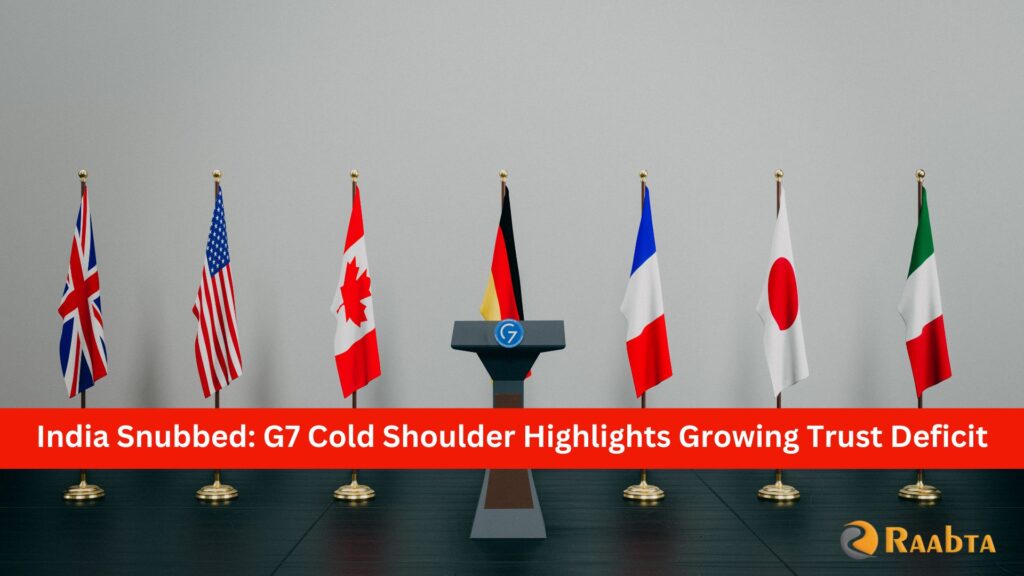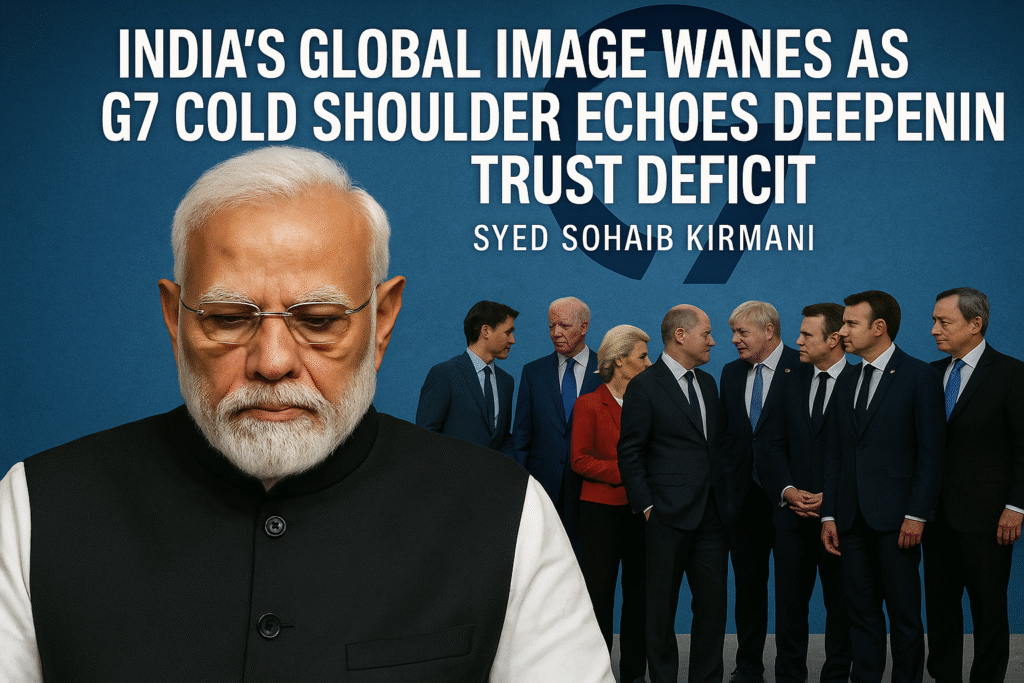In a striking development that has raised eyebrows across diplomatic circles, India’s absence from the recent G7 Summit has ignited questions about its evolving global image and strategic positioning. While New Delhi has long projected itself as a rising democratic power and a bulwark against terrorism, its increasing ideological assertiveness and alleged extraterritorial actions are eroding the trust it once enjoyed among both traditional allies and emerging partners.
India, under Prime Minister Narendra Modi, has frequently cast itself as a victim of state-sponsored terrorism — particularly pointing fingers at Pakistan. However, recent international developments suggest that this narrative is facing growing skepticism, even among Western nations once aligned with New Delhi’s worldview.
The most glaring blow came from Canada, a long-standing partner and member of the G7 bloc. In September 2023, Canadian Prime Minister Justin Trudeau made a startling claim: that Indian government agents were involved in the assassination of Hardeep Singh Nijjar, a Canadian citizen and Sikh separatist leader, on Canadian soil. The accusation, though still under investigation, has significantly strained bilateral relations. India rejected the charge outright, calling it “absurd and motivated,” but the diplomatic fallout was immediate — with tit-for-tat expulsions of diplomats and a chilling of formal ties.

What makes this incident more damaging for India is that the accusation did not come from a rival state like Pakistan, which has often accused India of covert operations. Rather, it emerged from a G7 ally, underscoring a growing discomfort in the West with New Delhi’s increasingly muscular and opaque foreign policy moves.
According to foreign policy experts, the absence of an invitation to the G7 Summit could be interpreted as a soft rebuke, or at least a signal that India’s positioning as a bridge between the Global South and Western democracies is no longer unquestioned.
“This is not just about one assassination allegation,” said a former Indian diplomat speaking on condition of anonymity. “It’s about how India is increasingly being seen — as a nation sliding into majoritarianism at home, and willing to export that ideological assertiveness abroad.”
Observers point to a broader erosion of democratic values and rise in religious polarization within India under the BJP-led government. From the revocation of Kashmir’s autonomy to rising attacks on minorities, and the marginalization of dissent, many analysts believe that India’s internal politics are starting to affect its global perception.
This shift is particularly visible in forums like the G7, which, while not excluding India formally, have shown increasing ambivalence about India’s role as a liberal democratic counterweight to China. By contrast, India remains active in groupings like BRICS and the SCO, which include authoritarian or non-democratic regimes — further complicating its identity on the global stage.
For the developing world — the so-called Global South — India had once been seen as a champion of equitable development and non-aligned cooperation. However, critics argue that India’s tilt toward nationalist rhetoric, surveillance-driven governance, and muscular foreign policy has made it a less convincing advocate for the very values it claims to represent.
The Road Ahead
While India remains a vital geopolitical player due to its economic potential, military strength, and massive population, the cracks in its international narrative are beginning to show. Strategic autonomy is one thing; perceived duplicity is another.
If India continues down this path, the diplomatic isolation seen at the G7 might not remain symbolic — it could evolve into more tangible consequences in terms of trade, alliances, and soft power.
The question remains: Can India recalibrate its image, or will its ideological commitments continue to alienate the very allies it seeks to court?
Author: Syed Sohaib Kirmani
He is a media graduate from Beaconhouse National University with a strong background in conventional and digital media, public relations, and content creation. As a seasoned writer, his articles have attracted over millions of views, showcasing his command over both Urdu and English. With hands-on experience in journalism, including roles at Express News and Far Media, he brings a unique blend of academic insight and field expertise to his writing.

